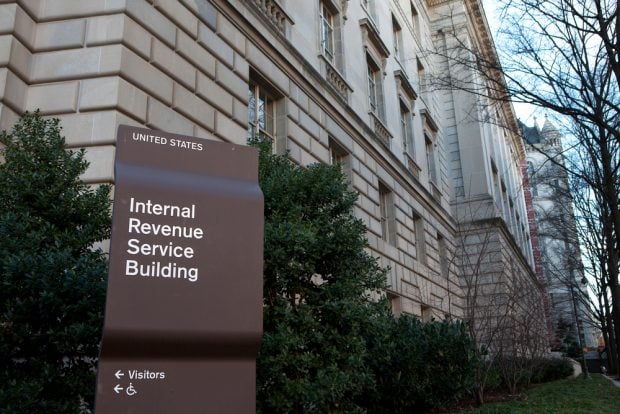 Internal Revenue Service, Washington D.C.
Internal Revenue Service, Washington D.C.
About three weeks before the former CEO of the New Haven County Credit Union pleaded guilty to a $600,000 fraud scheme, a state regulator placed the North Haven, Conn. cooperative under a consent order for alleged unsafe and unsound practices.
What's more, the credit union's tax exempt status was revoked in 2016 by the IRS for failing to file its 990 Form required by federal law.
Recommended For You
Christopher Marone, who was appointed president/CEO of the $20.1 million NHCCU in June, did not return phone calls and email messages seeking comment.
The consent order was issued by Connecticut's Bank Commissioner Jorge L. Perez on Aug. 5. Three weeks later, James Farrell, 55, of East Haven, Conn. pleaded guilty to one count of bank fraud in federal court, according to the U.S. Attorney's office in Connecticut.
While serving as NHCCU CEO, Farrell was also moonlighting as a bookkeeper at a local restaurant and admitted to fraudulently transferring $602,908 from the NHCCU general ledger account from July 2011 to March 2016 to the eatery's account and, to a lesser extent, for his own personal benefit, according to court documents and statements made in court. Farrell was CEO from 1992 to June 2015, but he was retained by NHCCU's board to assist the new CEO through March 2016.
The consent order lists 14 different stipulations. Some of them require NHCCU to develop and implement effective internal controls and a budget, review and revise all loan policies, provide bank secrecy employee training and hire a consultant who will develop a written analysis and assessment of the credit union's board, management, and staff for the purpose of providing qualified supervision and staffing at the credit union.
According to NCUA financial performance reports, the credit union recorded a well-capitalized net worth of 7.15% at the end of the second quarter, but it posted an adequately-capitalized net worth of 6.77% at the end of the first quarter. From 2014 to 2018, however, NHCCU's net worth fell below 7% well capitalized threshold that ranged from 5.51% to 6.78%.
The IRS automatically revoked NHCCU tax exempt status, as it does for all nonprofit organizations that fail to submit their 990 Form three years in a row. The IRS revoked the credit union's tax exempt status on May 15, 2016. State-chartered credit unions are required to file 990 Forms with the IRS every year. Federal credit unions are not required to file 990 Forms with the IRS.
The last 990 Form filed by NHCCU was for tax year 2012. But an IRS date stamp on the first page of the credit union's 990 Form shows the federal agency did not receive the form until February 2014. The 990 Form, which includes the organization's financial statements, executive compensation and governance information, is required to be submitted to the IRS on May 15 of every year.
The IRS revocation list, which is updated regularly, also posts the date that an organization's tax exempt status has been reinstated. However, there is no such reinstatement date listed for NHCCU as of Sept. 25, according to the IRS.
The IRS tax exempt revocation generally means the credit union will be required to pay the corporate income tax on its annual revenue.
According to the Washington, D.C.-based National Council of Nonprofits, the organization may be subject to back taxes and penalties for failing to pay corporate income taxes if the effective revocation was in a prior tax year.
Revocation of the IRS tax exempt status also may mean that any state tax exemptions, including exemptions from income tax, property tax and sales/use tax, that are dependent on federal tax exempt status, may also be revoked, according to the National Council of Nonprofits.
It is unknown whether NHCCU has been paying corporate income tax on its annual revenue or has had any state tax exemptions revoked.
© Touchpoint Markets, All Rights Reserved. Request academic re-use from www.copyright.com. All other uses, submit a request to [email protected]. For more inforrmation visit Asset & Logo Licensing.







